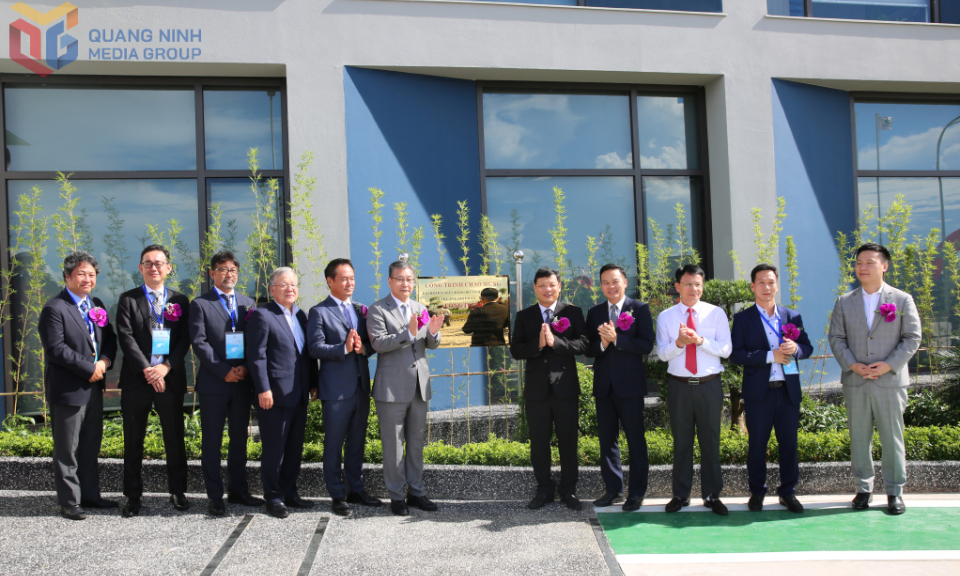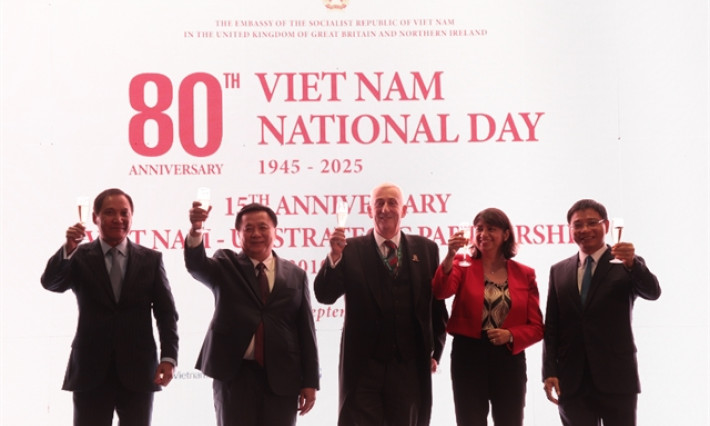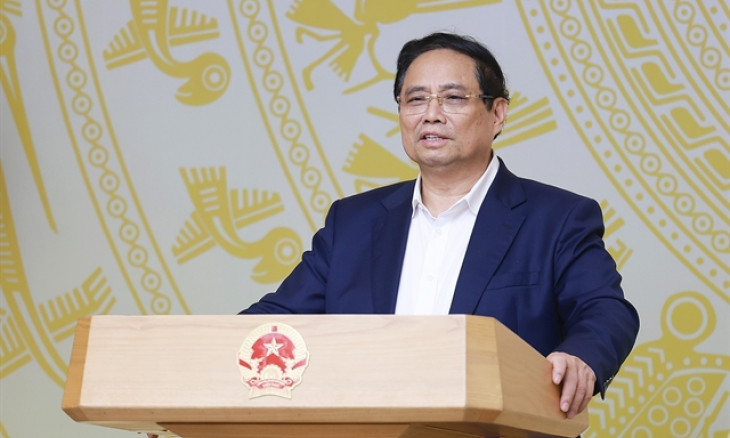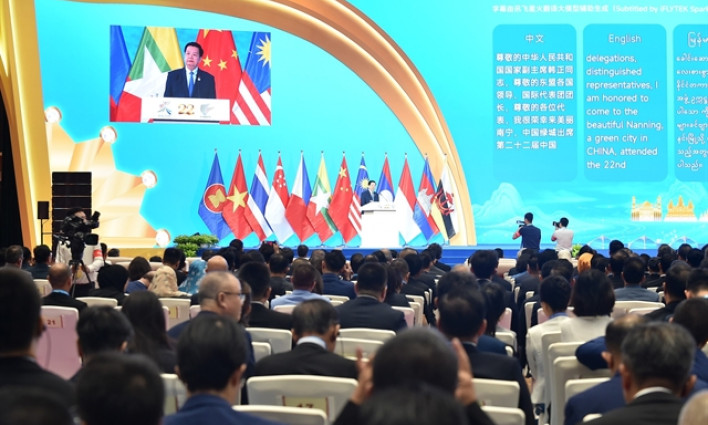Việt Nam advances national plan to eliminate ozone-depleting substances, meet environmental obligations by 2045
Việt Nam is told of promoting the carbon credit market in refrigeration and air-conditioning sector as one ways to protect the ozone layer because currently, most substances that destroy the ozone layer and cause the greenhouse effect are used in the fields of refrigeration and air conditioning.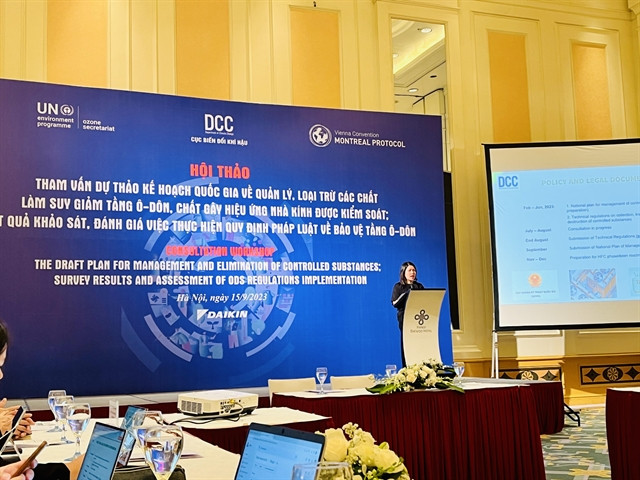
Việt Nam is advised to promote the carbon credit market in the refrigeration and air-conditioning sector as one way to protect the ozone layer.
Currently, most substances that destroy the ozone layer and cause the greenhouse effect are used in the fields of refrigeration and air conditioning.
The country also needs to develop technical standards and regulations to calculate greenhouse gas (GHG) emissions according to equipment life cycle. It should also consider imposing taxation on emissions to build a national conservation fund for refrigeration-green-clean technology.
Associate Professor Nguyễn Việt Dũng, vice president of the Việt Nam Society of Refrigeration and Air-conditioning Engineers, gave this advice at a consultancy workshop for the draft plan on management and elimination of substances that deplete the ozone layer. This was held on Friday morning in Hà Nội by the Department of Climate Change under the Ministry of Natural Resources and Environment. The workshop was in response to the International Day for the Preservation of the Ozone Layer (September 16).
Dũng also said that the country should enhance training for technicians in refrigeration and air-conditioning techniques, so they can acquire updated knowledge about modern refrigeration technologies.
Việt Nam currently lacks high-quality technicians in these fields. As a result, there are poor practices in installation, operation, and maintenance of equipment, leading to refrigerant leaks into the environment, he said.
Montreal Protocol’s implementation in VN
Nguyễn Đặng Thu Cúc, deputy head of the department’s Greenhouse Gas Emissions and Ozone Layer Protection Office, said Việt Nam ratified the Montreal Protocol on Substances that Deplete the Ozone Layer in 1994.
Ozone depleting substances include chlorofluorocarbons (CFCs), hydrochlorofluorocarbons (HCFCs), halons, methyl bromide, carbon tetrachloride, hydrobromofluorocarbons, chlorobromomethane, and methyl chloroform.
In 2001, Việt Nam had completely eliminated the use of Chlorofluorocarbons (CFCs), Halon, and Carbon tetrachloride (CCL4), she said.
In 2012, the country launched a plan to support foam manufacturing enterprises to phase down pure Hydrochlorofluorocarbon-14b (HCFC-14b) substance, aiming to reduce 10 per cent of the total consumption of the substance in the country, she said.
In 2018, it launched another plan to support enterprises with technology transformation to phase down ozone-depleting substances, aiming to reduce 35 per cent of the consumption of these substances, she added.
In 2019, Việt Nam ratified the Kigali Amendment, she said.
The Kigali Amendment to the Montreal Protocol is an international agreement to gradually reduce the consumption and production of hydrofluorocarbons (HFCs).
Việt Nam has controlled the import quota of HCFCs according to the roadmap and plans to end the import of HCFCs completely by 2040, she said.
As planned, the country will freeze consumption of HFCs in the period of 2024-29 and gradually phase down 80 per cent of the HFCs consumption by 2045, she said.
Additionally, the country has compiled the national plan on management and elimination of substances that deplete the ozone layer, and is also developing technical regulations on collection, transport, recycling, reclamation, and destruction of these substances, she said.
According to the United Nations Environment Programme (UNEP), the protocol is a landmark multilateral environmental agreement that regulates the production and consumption of nearly 100 man-made chemicals referred to as ozone depleting substances (ODS).
When released into the atmosphere, these chemicals damage the stratospheric ozone layer, Earth’s protective shield that protects humans and the environment from harmful levels of ultraviolet radiation from the sun. Adopted on 16 September 1987, the Protocol is, to date, one of the few treaties to achieve universal ratification.
National plan on controlled substances
Nguyễn Bá Tú, of the Greenhouse Gas Emissions and Ozone Layer Protection Office, said that constructing the national plan on management and elimination of substances that deplete the ozone layer is considered vital. This is to fulfil Việt Nam's obligations under international treaties and to carry out tasks to protect the ozone layer in accordance with the Law on Environmental Protection 2020.
The national plan’s drafting team was formed in December 2022.
From December 2022 to July 2023, the team undertook research and surveys; they collected data on the consumption of controlled substances in Việt Nam, reviewed and assessed the selection of technology and refrigerant alternatives, and collaborated with experts from the World Bank and UNEP, as well as domestic scientists, to propose scenarios for the consumption of controlled substances up to 2045, he said.
The consultation and revision of the plan commenced in July 2023, he added.
According to the schedule, the plan will be presented to the ministry for approval between September and October 2023, he said.
The plan's objective is to manage effectively and gradually eliminate the controlled substances in line with the roadmap. This will involve transitioning to technology that utilises substances with low or zero global warming potential, aiming to cut emissions by 11.2 tonnes of CO2 equivalent, he explained.
Funds for the implementation of the plan will come from the State budget and will also be sourced from organisations, individuals, and other legal funding avenues, he said.

